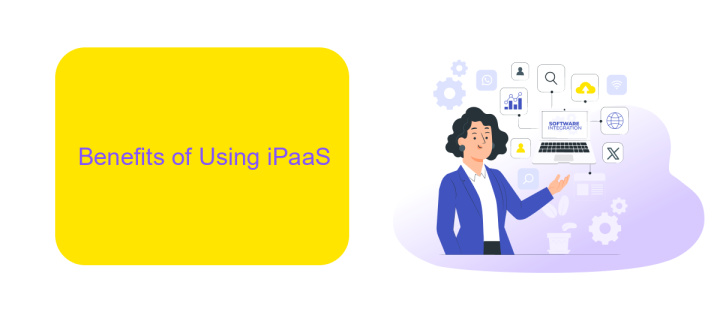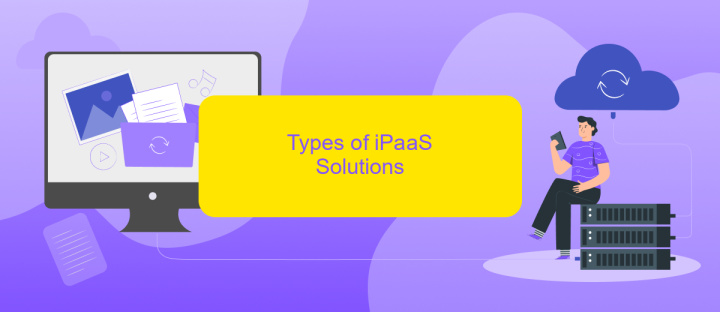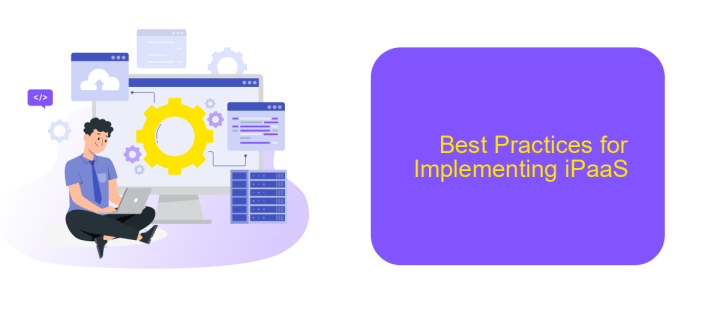iPaaS PPT
In today's fast-paced digital landscape, businesses are increasingly turning to Integration Platform as a Service (iPaaS) solutions to streamline their operations and enhance connectivity. This presentation explores the key features, benefits, and practical applications of iPaaS, providing valuable insights into how it can revolutionize your organization's integration strategy and drive efficiency and innovation.
Introduction
In today's fast-paced digital landscape, businesses are increasingly relying on Integration Platform as a Service (iPaaS) to streamline their operations and enhance connectivity between various software applications. iPaaS solutions provide a centralized platform for integrating disparate systems, enabling seamless data flow and improving overall efficiency.
- Automated data synchronization between different applications
- Real-time data processing and analytics
- Scalability to accommodate growing business needs
- Reduced operational costs through optimized workflows
One notable iPaaS solution is ApiX-Drive, which offers a user-friendly interface for setting up integrations without the need for extensive coding knowledge. By leveraging ApiX-Drive, businesses can quickly connect their CRM, marketing, and other essential tools, ensuring that data is consistently up-to-date across all platforms. As a result, organizations can focus more on strategic initiatives rather than getting bogged down by manual data management tasks.
Benefits of Using iPaaS

Integrating various software applications and services can be a complex and time-consuming task. However, using an Integration Platform as a Service (iPaaS) simplifies this process significantly. iPaaS solutions, such as ApiX-Drive, enable businesses to connect disparate systems seamlessly, automating workflows and improving operational efficiency. This not only reduces the need for manual data entry but also ensures that data is consistent and up-to-date across all platforms, enhancing overall productivity.
Another key benefit of using iPaaS is its scalability and flexibility. As businesses grow and evolve, their integration needs become more complex. iPaaS platforms are designed to scale effortlessly, accommodating increasing data volumes and more intricate workflows without requiring significant changes to the existing infrastructure. Additionally, iPaaS solutions like ApiX-Drive offer user-friendly interfaces and pre-built connectors, making it easy for non-technical users to set up and manage integrations, thereby reducing dependency on IT departments and accelerating time-to-market for new initiatives.
Types of iPaaS Solutions

Integration Platform as a Service (iPaaS) solutions come in various forms, each catering to different business needs and technical requirements. These solutions are designed to streamline and automate the integration of various applications and data sources, enhancing operational efficiency and data consistency.
- Cloud-based iPaaS: These solutions are hosted on cloud servers, offering scalability, flexibility, and easy maintenance. They are ideal for businesses looking to integrate cloud applications with minimal on-premises infrastructure.
- Hybrid iPaaS: Combining both cloud and on-premises environments, hybrid iPaaS solutions provide the best of both worlds. They are suitable for organizations with a mix of legacy systems and modern cloud applications.
- Data-centric iPaaS: Focused on data integration, these solutions ensure seamless data flow between different systems. They are essential for businesses that rely heavily on data analytics and reporting.
- Application-centric iPaaS: These solutions prioritize the integration of various applications, enabling smooth workflows and process automation. ApiX-Drive is an example of an application-centric iPaaS, simplifying the integration process with its user-friendly interface and extensive app support.
Choosing the right type of iPaaS solution depends on your organization's specific needs, existing infrastructure, and future growth plans. By understanding the different types of iPaaS solutions, businesses can make informed decisions to optimize their integration strategies.
Best Practices for Implementing iPaaS

Implementing an Integration Platform as a Service (iPaaS) can significantly streamline your business processes by enabling seamless data flow between various applications. However, to maximize the benefits, it's essential to follow some best practices. Begin by thoroughly understanding your integration needs and setting clear objectives. This will help you choose the right iPaaS solution that aligns with your business goals.
Another crucial step is to ensure data security and compliance. Make sure that the iPaaS platform you choose complies with relevant regulations and offers robust data encryption methods. Regularly update your security protocols to protect sensitive information from potential breaches.
- Choose a scalable iPaaS solution to accommodate future growth.
- Utilize comprehensive monitoring and analytics tools to track performance.
- Leverage pre-built connectors and templates to speed up the integration process.
- Regularly test and update integrations to ensure they function optimally.
For instance, ApiX-Drive offers a user-friendly interface and a wide range of pre-built connectors, making it easier to set up and manage integrations. By following these best practices, you can ensure a smooth and efficient implementation of your iPaaS solution, ultimately enhancing your business operations.
Conclusion
In conclusion, the integration Platform as a Service (iPaaS) presents a robust solution for businesses looking to streamline their operations and improve connectivity between disparate systems. By leveraging iPaaS, companies can automate workflows, reduce manual tasks, and enhance data accuracy across various applications. This not only boosts efficiency but also allows for greater scalability and flexibility in adapting to evolving business needs.
For those seeking a reliable tool to facilitate these integrations, services like ApiX-Drive offer a user-friendly interface and powerful features that simplify the process of connecting different applications. ApiX-Drive supports a wide range of integrations, making it an ideal choice for businesses aiming to optimize their IT infrastructure without extensive coding or technical expertise. Embracing such solutions can significantly contribute to achieving seamless and efficient operations in today's dynamic digital landscape.


FAQ
What is iPaaS?
How does iPaaS benefit businesses?
What are some common use cases for iPaaS?
How can iPaaS support the integration of legacy systems with modern cloud applications?
What should be considered when choosing an iPaaS provider?
Apix-Drive is a simple and efficient system connector that will help you automate routine tasks and optimize business processes. You can save time and money, direct these resources to more important purposes. Test ApiX-Drive and make sure that this tool will relieve your employees and after 5 minutes of settings your business will start working faster.

